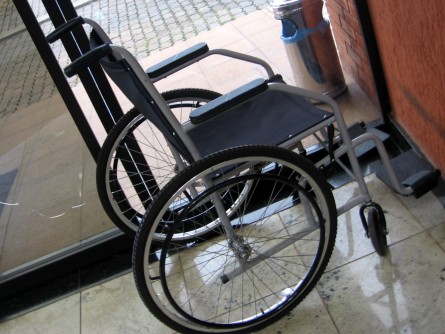One of the talking points we were told to use with the recipients of our chirpy phone calls was the idea that some of their contributions would be used to pay for student financial aid. Even at the age of 19, I knew that money was fungible and that a college with a big endowment could always contribute more in financial aid or even (gasp!) reduce tuition. And many of the alumnae on the other end of the phone told me just that.
It turns out they weren't alone. Wealthy private colleges are having more and more trouble convincing donors, particularly young donors that their money is best spent giving to their alma mater. A recent article in the Chronicle of Higher Education (subscription required) describes how Middlebury College was experiencing this problem:
Like other small, elite liberal-arts colleges, Middlebury has faced financial challenges in recent years, including significant hits to its endowment, which still has not completely recovered from the economic downturn. Multiyear commitments from donors, which tend to be earmarked for the endowment and which provide future revenue for the college's operating budget, have also been down.
Middlebury's former president came up with an idea called MiddStart, a "microphilanthropy" program, in which alums (or presumably any donor) can help students with their own projects:
Students submit a proposal to a small committee, which helps them refine the plans and communicate their ideas to donors. There are 10 projects now posted on Middlebury's Web site, including one that aims to raise $2,000 to start a garden at a public school in the South Bronx, and another that has already reached its $2,500 goal to buy a refrigerator for a house that students are building for the national Solar Decathlon competition.
This seems like a decent enough idea. And it is easy to see why young alums would be engaged with such pitches. This is the generation that populates Teach for America, that takes years off for service, etc. So sure they'd want to help out a student who wants to help kids in the South Bronx. Or any number of other socially responsible projects? But how again is this going to improve Middlebury's bottom line? I'm not sure. Maybe the alums will feel more connected to the school through this program. But I'm skeptical. The likelihood is they'll feel more connected to those kids who get a garden in the South Bronx.
I think the more interesting solution would be if colleges actually started doing more responsible accounting. Most experts have told me that it is almost impossible to track college spending. As one philanthropist told me, "If you ask a school how much they spend teaching one undergraduate freshman writing, you will get back a report months later with a variety of metrics for calculating that. If you ask an oil company how much it cost them to extract one drop of oil from the ground, you can get an answer--an exact answer--overnight." The fact that donors want less vague answers about where their money is going hasn't escaped some administrators. And Middlebury seems on the way to figuring that out:
If there's been a trend of any kind," says James R. Keyes, vice president for college advancement at Middlebury, "more and more people want to know exactly where their gift is going, or they want to give to something special that is a passion of theirs.
The only question now is how colleges are going to turn themselves into the passion.





